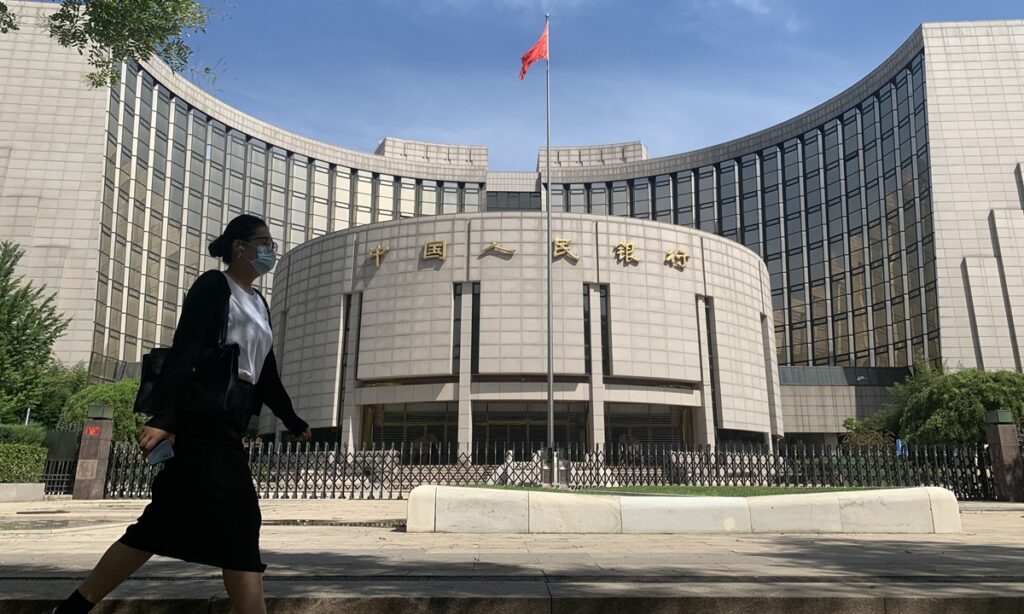Measures in pipeline to elevate portion of lending: PBC
China is set to further increase financial support for private enterprises by introducing measures to lift the proportion of loans to private enterprises, according to the People’s Bank of China (PBC), the country’s central bank.
The drafted guideline comes as China accelerates efforts to shore up the confidence of private enterprises, a pillar of the nation’s economic expansion.
Chinese experts said that the potential release of the guideline shows that policymakers are aware of the financing needs of private enterprises and are moving to improve the process.
Strengthened efforts will help improve insufficient domestic demand, and it will also stimulate the economic recovery with boosted confidence, they said.
The guideline will focus on the difficulties of private companies, and highlight that financial institutions should eliminate ownership discriminations in providing financial services, Ma Jianyang, a deputy head of the financial market department at the PBC, said on Wednesday, according to media outlet Stcn.com.
The central bank will smooth financial channels including stocks, bonds and loans, and it will also guide financial institutions to increase loans and support more bond issues, said Ma.
The central bank will maintain reasonable and sufficient liquidity. In terms of monetary policy, more financial resources will be directed to private enterprises and small and micro-sized enterprises, PBC Governor Pan Gongsheng said at the meeting.
Private enterprises have relatively stronger demand for financing than state-owned enterprises but usually get less support, which does not align with the current goal to stabilize economic development, Xi Junyang, a professor at the Shanghai University of Finance and Economics, told the Global Times on Wednesday.
The strengthened support will provide more tools for banks while smoothing financing channels for enterprises to reduce the potential risks for banks issuing loans, and banks can then step up financial support for domestic firms – especially small and medium-sized enterprises (SMEs) – with fewer worries, Hu Qimu, a deputy secretary general of the digital real economies integration Forum 50, told the Global Times on Wednesday.
Hu noted that the major financing methods for domestic enterprises are indirect sources such as loans, with a relatively small amount of firms choosing direct financing. The proposal to smooth the major financing channels of equity, debt and loans will further ease the risks for SMEs seeking financing.
Private enterprises play an indispensible role in the nation’s economic development, contributing to a wide range of sectors from employment to trade.
In July, Chinese authorities issued a guideline on boosting the growth of the private economy, promising to improve its business environment, enhance policy support, and strengthen the legal guarantees for its development.
The country will help grow, improve and strengthen the private economy so that it can play a bigger role in advancing national rejuvenation, the document said.
Many representative financial institutions participated in the Wednesday meeting, along with more than 20 representatives of private enterprises from sectors of real estate, traditional manufacturing, agriculture, new energy and high-tech.
Kong Weijian, board chairman of Beijing Deqingyuan Agricultural Technology Co, said that the company hopes to introduce special financial policies for agricultural enterprises, Stcn.com reported.
Privately owned companies account for 63 percent of those listed in the Shanghai and Shenzhen markets, and their combined market capitalization accounts for 41 percent of the total, according to Wang Jianjun, a vice chairman of the China Securities Regulatory Commission (CSRC).
In the past three years, private listed companies have distributed more than 990 billion yuan ($136 billion) in cash dividends, accounting for more than 40 percent of their profits during the period.
Wang said that the CSRC will make full use of tools such as stocks, bonds, funds, futures and real estate investment trusts to support the development and growth of the private economy.
Zhang Xiaodong, an executive vice president of Bank of China, said while presenting the interim results for 2023 on Wednesday that the bank will increase credit support for key industries such as integrated circuits, new energy, automobiles and power lithium batteries.
(Global Times)




